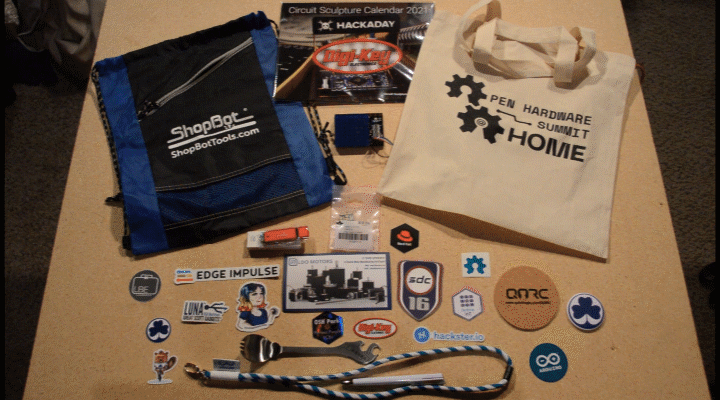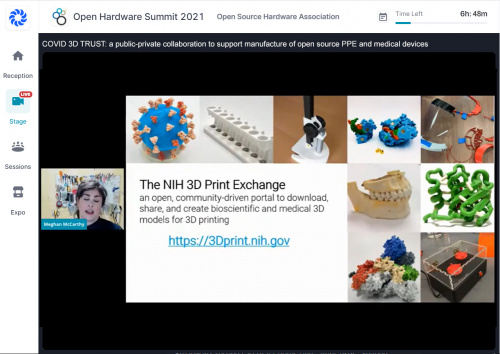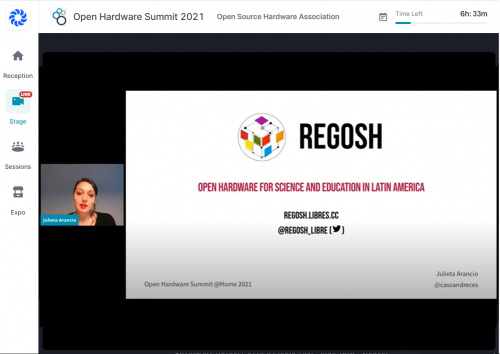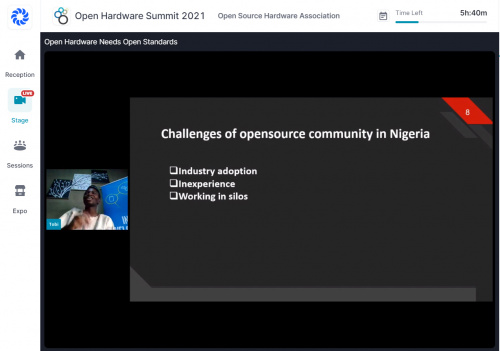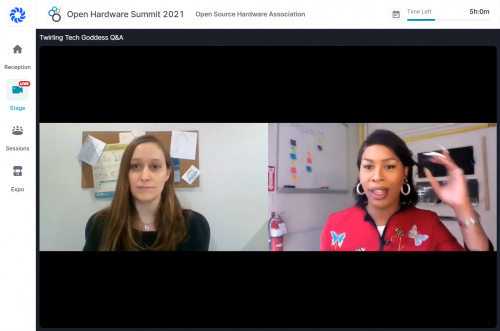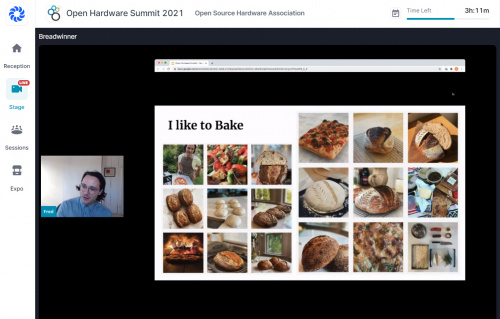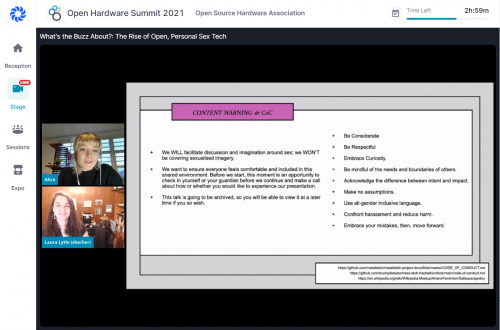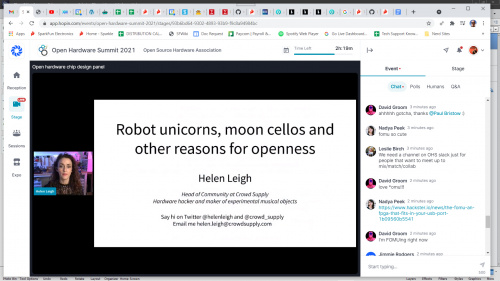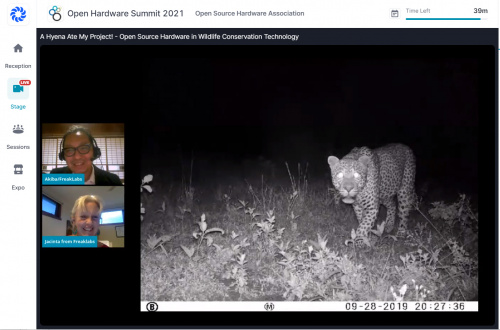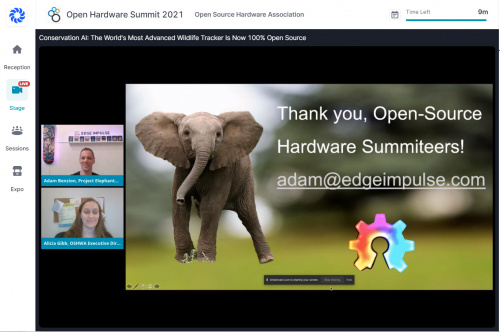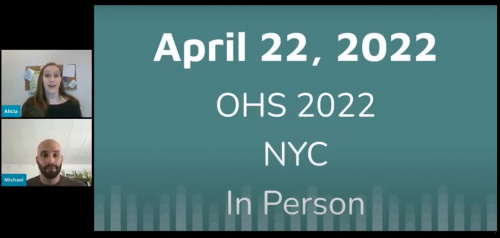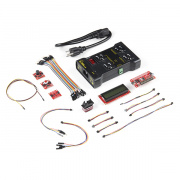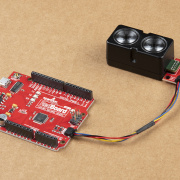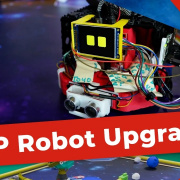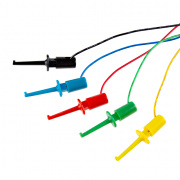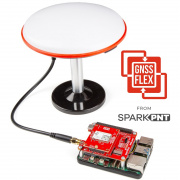OSHWA Summit, where art thou?
For this year's Open Source Hardware Association Summit, there was no venue. Instead, it was a completely virtual affair, allowing all of us to hear a host of amazing speakers from the comfort of our own homes.
Last March I had recently returned from a trip abroad, and was preparing to head to New York for the 2020 Open Source Hardware Summit. I love traveling, and I love summits, cons and pretty much any gathering of like-minded people, eager to share ideas and philosophies and help each other grow. But things got a little dicey last March, and then went altogether sideways. Needless to say I didn’t make it to New York, and everyone scrambled to shift the summit to a virtual format.
Here we are, over a year later, and once again there is no great gathering of like-minded people, excited to share their ideas on open source hardware. But this year everyone was a bit more prepared. OSHWA did an amazing job of putting together this year’s summit virtually.
The summit opened with Alicia Gibb and Michael Weinberg, OSHWA’s executive director and board president, respectively. They welcomed everyone, gave a brief overview of what OSHWA has been doing for the past year, and then handed things over to the day’s keynote speaker, Meghan McCarthy, program lead for 3D printing and biovisualization in the Office of Cyber Infrastructure and Computational Biology at the National Institute of Allergy and Infectious Diseases. Yeah, big guns right out of the gate. She gave an amazing talk on a topic that just one year ago didn’t exist. She spoke about the COVID 3D TRUST: a public-private collaboration to support manufacture of open source PPE and medical devices during the COVID-19 public health emergency. The trust currently contains over six hundred files, all freely downloadable, for ventilators, face shields, ear savers, even nasopharyngeal swabs.
The day was filled with incredible presenters with amazing stories. I’m going to give you a random sampling here, but you can see the entire day’s summit over on Youtube. So here are just a few to whet your appetite.
reGOSH is a network working in seven countries in Latin America towards the adoption of free/open source technologies for science and education.
Oluwatobi Oyinlola is an experienced embedded systems engineer, inventor, and IoT evangelist sharing some of the projects, impact and opportunities in Nigeria for open hardware.
LeeLee James is channeling her engineering education, dance training and resourcefulness through queer, femme and Black identities into a wild and wonderful expression of her STEAM art through her YouTube series, “Twirling Tech Goddess.”
Fred Benenson, a baker, surfer, and self-described data nerd, shared his design for a lid that sits atop a standard Ball widemouth mason jar and uploads data representing the height and fermentation activity of your starter to your profile on Breadwinner. In this talk, Laura and Alice looked at how the industry is opening up but often still suffering from closed source in security and UX. They explored grassroots projects engaging sexuality through destigmatizing technical lenses, reclaiming diverse bodies as sites of pleasure, and transcending barriers of machine interaction. This talk is the story of how a series of collaborations and a spirit of openness led to the evolution of one of Helen's projects, from a herd of gesture-controlled robot unicorns, to a leather glove that plays the sounds of moon-bounced cellos, to an open source edtech product sold all over the world. Wildlife conservation technology is in a strange limbo. It can actually make good use of a lot of bleeding edge technology, but it's custom, niche, and small volume. This means it’s essentially ignored by the technology industry. For the past six months, Akiba and Jacinta have been putting together training materials on Arduino and embedded programming for wildlife conservation. The goal is to help put together shared community knowledge that can to bring forth a next generation of cross-domain wildlife researchers that understand the biology, ecology and engineering to implement or collaborate to create the specific tools conservationists need. Adam Benzion shared the story of ElephantEdge, an open and collaborative sustainability project, started in early 2020, that resulted in the design and shipping of the world’s most advanced elephant tracker, powered by open embedded machine learning. The software and hardware produced by ElephantEdge will be fully open-sourced on https://opencollar.io/ to enable future scaling and innovation by anyone, anywhere.And finally, in the spirit of hopefulness, OSHWA has announced a date and a place for next year's summit! That is not to say that it will definitely happen in person, as we learned this year. Perhaps it will be all be in person, perhaps it will be all online. Maybe it will be a hybrid of both. But whatever next year holds for us in terms of large gatherings, it is definitely worth your while to attend if you can, and to be amazed and inspired by this group of incredible minds and souls, and perhaps even cake!
